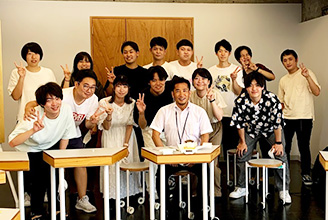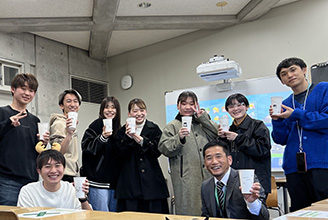Become a teacher who can empathize with your students! Learn research methods to understand the inner thoughts of students (people) and the attitude and skills to be a good supporter and sympathizer.
Research Themes
We explore ways to understand the inner workings of students (people) and provide psychological and educational support.
[Learning Guidance]
"The process and factors that lead to overcoming difficulties in learning," "Effective teaching styles for students who avoid going to school," etc.
[Student Guidance]
"How teachers respond to the school caste phenomenon," "How a sense of assumed competence affects aggressive behavior toward others," "The relationship between school avoidance and trust in teachers during junior high school years," etc.
[Humans in general]
"The impact of how one perceives failure experiences on stress tolerance," "The relationship between independence and blaming others in university students," "The internal factors of people who grow when scolded," "The impact of conversation frequency and trust on motivation to seek advice," "Research into burnout in sports," etc.
Activities
At school, there are students who struggle with their studies, daily life, and relationships. In this seminar, we conduct research to explore how to properly understand and support students when they become teachers. For research, students acquire psychological research methods (both qualitative and quantitative), and for graduation research, they pursue themes that each student is concerned with (some students do not limit themselves to education but rather to humanity in general). At the same time, we provide systematic training to acquire counseling attitudes and methods (beginner level) so that they can become proper understanding and supporters of children and their parents as teachers. In addition, we actively support various activities at the students' voluntary request.


Senior's voice
Graduate: Momoka Sawabe
Some students aim to become teachers, while others go on to other career paths, but I think what they have in common is that they are interested in people. Students learn through practical experience with their peers, such as what kind of approach has what kind of impact on others, and aim to obtain a peer helper qualification, which is a basic qualification in counseling. You can learn how to interact with people, which can be utilized no matter what career path you choose. You can also learn practical research methods through group work. Thanks to the friendly personalities of the teachers and the warm atmosphere, you can ask any questions you have right away and continue to learn.
Graduate Taichi Kanaya
"Collaboration and cooperation" among seminar students is essential when deepening learning. In the Kawasaki seminar, we conduct joint research and counseling exercises, but in order to make them better, everyone "collaborates and cooperates" with each other on data analysis, exercise feedback, mock lessons, etc. We create a space and environment where all seminar students, including the professor, can speak with confidence, so everyone can speak from various perspectives and deepen each other's learning. In addition, students take the initiative to hold independent seminars, practice mock lessons, study to obtain peer helper qualifications, and so on, and everyone complements and supports each other. There is a lot of interaction between seminar students, and it is a seminar with a very friendly and good atmosphere.